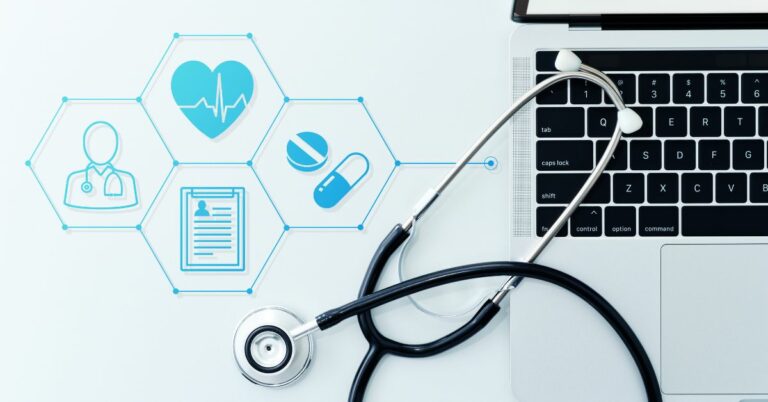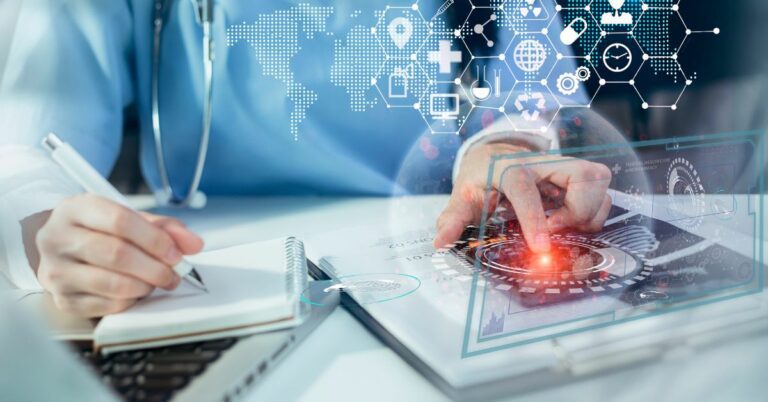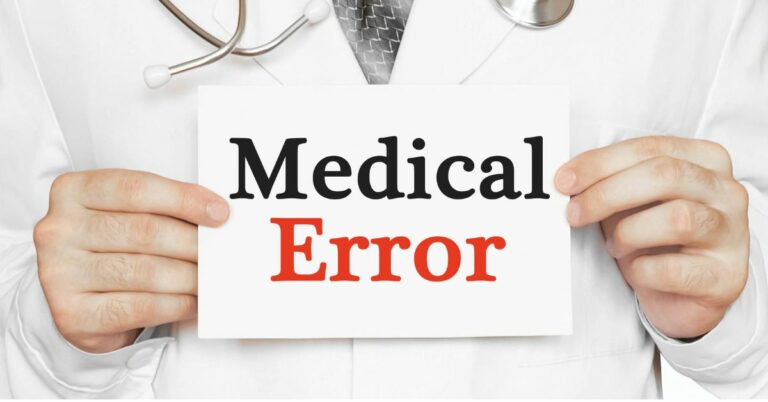Big data has been a buzzword in the business world for some time now. But what is big data, and how can it use for reducing healthcare costs? Big data is a term used to describe the large volume of data that organizations collect on a daily basis. This data can come from a variety of sources, including social media, website traffic, and customer transactions.
While it may seem like this data is nothing more than a bunch of numbers, it can actually be used to help identify trends and patterns. This information can then be used to make better decisions about everything from product development to marketing strategies. So how can big data be used to reduce healthcare costs? We are discussing the top 10 ways in this blog below
Top 10 Ways Big Data is Reducing Healthcare Costs

1. Big data is helping to identify and track wasteful spending in healthcare.
Big data is helping to identify and track wasteful spending in healthcare. How? By analyzing claims data to identify patterns of wasteful spending. For example, one study found that 27% of all hospitalizations could be prevented if patients received the right care at the right time. That’s a huge opportunity for cost savings! Big data can also help to improve the coordination of care, which can reduce costs by preventing duplicate tests and procedures.
2. Big data is helping to improve the efficiency of clinical trials.
The use of big data in clinical trials is helping to improve the efficiency of these important research studies. By collecting and analyzing large amounts of data, researchers are able to more quickly identify which treatments are most effective and which ones are not working as well. This saves time and money and ultimately results in better care for patients.
In the past, clinical trials were often delayed or even halted due to a lack of information. With big data, however, researchers have access to a wealth of information that can be used to inform their decision-making. This has resulted in shorter, more efficient clinical trials that produce better outcomes for patients.
Big data is also helping to improve the accuracy of clinical trial results. By analyzing large datasets, researchers can identify patterns and trends that would not be apparent with smaller samples. This leads to more reliable conclusions about the effectiveness of treatments being tested.
Read Also: Benefits of Mobile Healthcare Apps {for Patients & Doctors}
3. Big data is helping to better understand which treatments are most effective.
In the past, doctors treating patients with cancer would often rely on their own experience and intuition to choose the best course of action. However, thanks to big data, there is now a wealth of information available that can help to guide decision-making.
By gathering data from large numbers of patients, researchers are able to identify patterns and trends that would be difficult to spot in smaller studies. This has led to a better understanding of which treatments are most effective for different types of cancer.
As a result, doctors are now able to make more informed decisions about which treatments to offer their patients. This is leading to better outcomes and reduced healthcare costs.
4. Big data is helping to create more personalized treatment plans.
Big data is helping to create more personalized treatment plans. How? By allowing healthcare providers to better understand the needs of their patients and identify trends in care, big data is helping to create more personalized treatment plans that are tailored to the individual patient. This, in turn, is leading to better health outcomes and lower costs for both patients and healthcare providers.
5. Big data is helping to make the healthcare system more responsive to changes in demand.
Big data is helping to make the healthcare system more responsive to changes in demand. How? By providing information that can be used to identify and track trends in patient behavior, big data is helping healthcare providers adjust their offerings to better meet the needs of their patients. This, in turn, is leading to improved patient outcomes and reduced healthcare costs.
6. Big Data is helping in Real-time health monitoring

The term “big data” in healthcare refers to the rapidly growing volume, velocity, and variety of health-related data. This data is generated by sources such as Electronic Health Records (EHRs), wearable devices, and clinical trials.
Healthcare organizations are using big data to gain insights that can improve patient care and outcomes. One example is real-time health monitoring, which uses sensors to collect data about a patient’s vital signs and activity level. This information can be used to detect early signs of illness or disease, track the progress of a chronic condition, or determine if a medication is working as intended.
Big data can also be used to monitor population health trends and identify potential outbreaks of infectious diseases. By analyzing large sets of demographic, economic, and environmental data, researchers can identify risk factors for certain diseases and develop strategies for prevention.
7. Big data helps Detect and Prevent Fraud in Healthcare Organizations
Healthcare organizations are using big data to detect and prevent fraud in a number of ways. By using data analytics and predictive modeling, healthcare organizations can identify red flags that may indicate fraudulent activity.
Big data is helping healthcare organizations detect and prevent fraud in a number of ways, some being-
- Data analytics is used to identify patterns of fraud and abuse. For example, data analytics can be used to identify claims that are being submitted for services that were never rendered or claims for services that were not medically necessary.
- Another way big data is being used to detect and prevent fraud is by using predictive modeling. Predictive modeling can be used to identify red flags that may indicate fraudulent activity. For example, predictive modeling can be used to identify claims that are submitted with unusually high amounts of reimbursements, or claims that are submitted from locations that are known for fraud.
- Big data is also being used to develop new methods of detecting fraud. For example, machine learning algorithms can be used to analyze claims data to look for unusual patterns that may indicate fraud. Machine learning algorithms can also be used to analyze provider data to look for patterns of fraud and abuse.
8. Big Data is helping to prevent Medical Errors

Another way big data is reducing healthcare costs is by helping to prevent medical errors. Studies have shown that medical errors are a leading cause of death in the United States. By using data mining and predictive analytics, hospitals can identify patterns that lead to errors and take steps to prevent them. This not only saves lives but also reduces the cost of care.
9. Big data is helping to lower the cost of insurance premiums
Insurance companies have always used data to assess risk, but now they are using bigger and better data sets to do so. By analyzing this data, insurers can more accurately predict which customers are likely to need expensive care in the future. This allows them to charge those customers higher premiums while offering lower rates to those who are less likely to need costly treatment. This helps to keep insurance rates affordable for everyone involved.
10. Analyze Electronic Health Records (EHRs)
Today, electronic health records (EHRs) are relied on to store and manage patient health information. EHRs contain a wealth of data that can be used to improve patient care and population health. Here are some examples of how EHR data is being used to improve healthcare:
- Improve patient care: Researchers are using EHR data to identify patterns in disease progression and treatment response. This information can be used to develop more personalized treatment plans for individual patients.
- Reduce costs: By analyzing EHR data, healthcare organizations can identify opportunities for cost savings. For example, they may be able to find ways to reduce unnecessary tests and procedures.
- Improve population health: EHR data can be used to track the spread of disease and identify potential risk factors for certain conditions. This information can help public health officials develop strategies for the prevention and control of infectious diseases.
Final Thoughts
There is no doubt that big data is changing the healthcare landscape. By reducing costs and increasing efficiencies, big data is making healthcare more affordable and accessible for everyone. In the coming years, we can only expect big data to have an even bigger impact on healthcare, as more and more organizations adopt its use.
Build a scalable digital solution for your healthcare product from top healthcare IT experts!
QSS Technosoft is the most reputed healthcare app development company that has been delivering award-winning mobile healthcare solutions to different healthcare clients across the globe. We have a team of expert healthcare app professionals who can offer you a wide array of healthcare mobile app development services including Healthcare mobile apps, backend development, admin panel, device management, mPrescription, Electronic Health Information, hospital patient app, telemedicine app, appointment schedule app, etc. all compliant with HIPAA & HL7 regulations.
We are proud to mention that our work has been recognized by leading B2B reviews and research platforms like GoodFirms, Clutch, MirrorView, and many more.
Get connected to a team of expert Healthcare app developers!


Top 10 Ways How Big Data is Efficiently Reducing Healthcare Costs